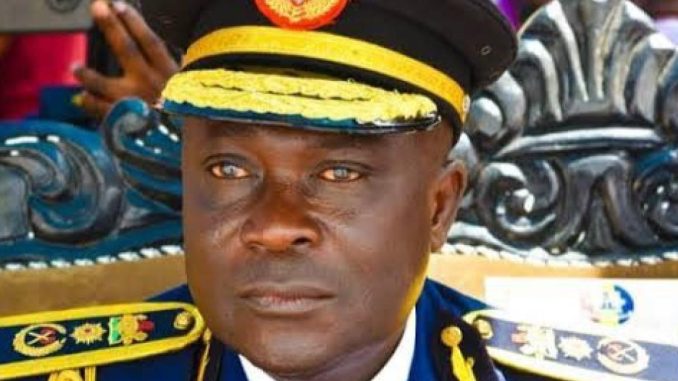
President Bola Tinubu approved the leadership transition ahead of Jaji’s scheduled retirement on August 13, 2025.
The Comptroller General of the Federal Fire Service, Abdulganiyu O. Jaji, has been officially replaced by his deputy, Deputy Comptroller General (DCG) Olumode Samuel Adeyemi, who hails from Kogi State.
President Bola Tinubu approved the leadership transition ahead of Jaji’s scheduled retirement on August 13, 2025.
The formal announcement confirming Adeyemi as the new Comptroller General is expected to be made on Wednesday.
Then-President Muhammadu Buhari approved the appointment of Abdulganiyu O. Jaji as the Comptroller General of the Federal Fire Service, effective from Friday, April 22, 2022.
Prior to his appointment, Jaji served as the Deputy Comptroller General overseeing Administration and Supplies within the Service.
He began his career in 1991 as a Higher Technical Officer at the Federal Ministry of Works and Housing, where he held various positions before being redeployed to the Federal Fire Service in 1999.
Earlier on Tuesday, the media reported that a group of aggrieved personnel within the FFS had raised an alarm over what they described as an “illegal and unjustifiable recruitment exercise” into mid-management positions, accusing Jaji of circumventing due process to install loyalists ahead of his imminent exit from office.
The allegations were detailed in an open letter dated July 28, 2025, and addressed to the Minister of Interior, Olubunmi Tunji-Ojo, and the Secretary of the Civil Defence, Correctional, Fire and Immigration Services Board (CDCFIB), Gen. A.M. Jibril (Rtd).
The petition was signed by “Concerned Personnel of the Federal Fire Service,” who vowed to take legal and industrial action if the recruitment is not suspended immediately.
Breach of Guidelines
The protesting officers allege that the recruitment into Grade Levels 10 to 14 violates the CDCFIB’s 2013 Guidelines on Transfer of Service, which expressly prohibit lateral entry into paramilitary agencies, including the FFS.
The officers emphasised that the FFS is a technical agency that demands years of rigorous training and field experience, which cannot be substituted with political patronage.
“Bringing in external candidates—many of whom lack the necessary firefighting and emergency response competencies—jeopardises the safety of Nigerians and undermines the Federal Government’s investment in achieving world-class emergency response standards,” they wrote, accusing the CGF of attempting to “marginalise qualified personnel and impose loyalists in key positions before his impending exit on or before August 13, 2025.”
No Established Vacancies in Targeted Grades
Citing data from the Office of the Head of the Civil Service of the Federation, the officers claimed that no vacancies exist in GL 10 to 12 within the FFS for 2025.
According to them, the current staff strength already includes: GL 10: 645 personnel; GL 11: 495 personnel and GL 12: 230 personnel.
“Recruiting externally into these grades is not only unnecessary but also a gross violation of due process, leading to overstaffing, redundancy, and wastage of government resources,” the letter warned.
Internal Candidates Overlooked
The letter also decried the exclusion of already trained and qualified FFS staff from elevation into GL 13 and 14.
“Instead of rewarding competence and dedication, the CGF Abdulganiyu O. Jaji and the Board are deliberately sidelining career officers in favour of external candidates with questionable expertise,” the petitioners alleged.
The open letter outlined the consequences of persistent stagnation among personnel as severe demoralisation, declining productivity, increased indiscipline and potential for industrial unrest.
“If this injustice persists, the FFS risks becoming a breeding ground for industrial unrest, which will negatively impact national safety and emergency response operations,” it read.
Threats of Legal and Industrial Action
Warning of potential fallout, the group declared its intention to escalate the matter if no urgent intervention is taken.
According to them, if the issues are not resolved, they have no choice but to “consider industrial action, pursue legal action and expose this misconduct to relevant anti-corruption agencies and the public”.
Leave a Reply